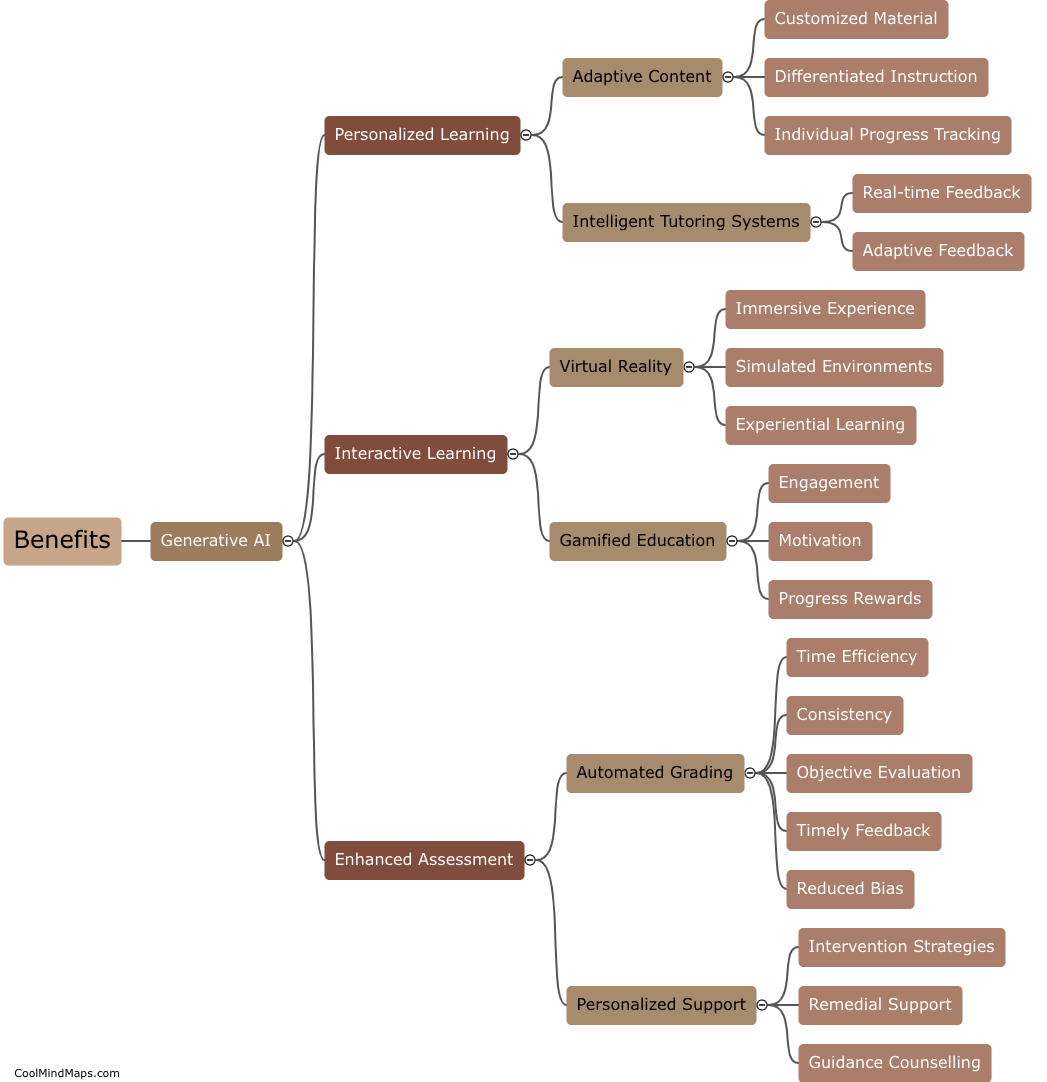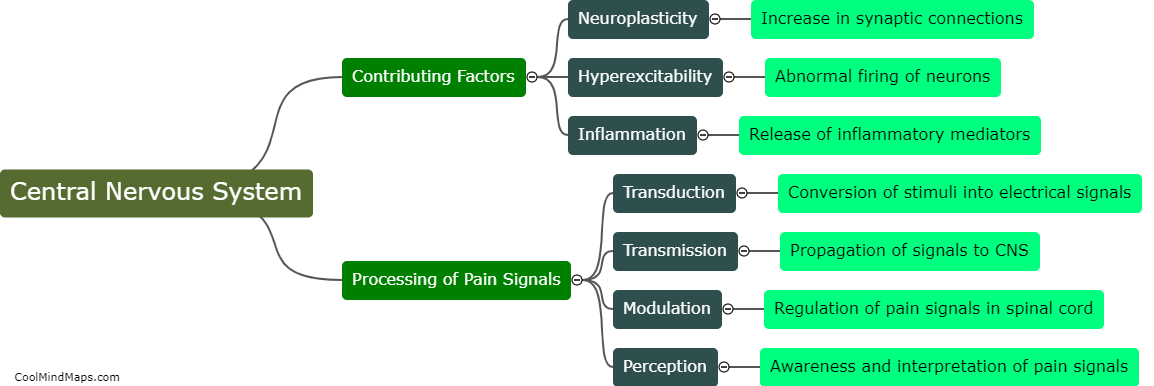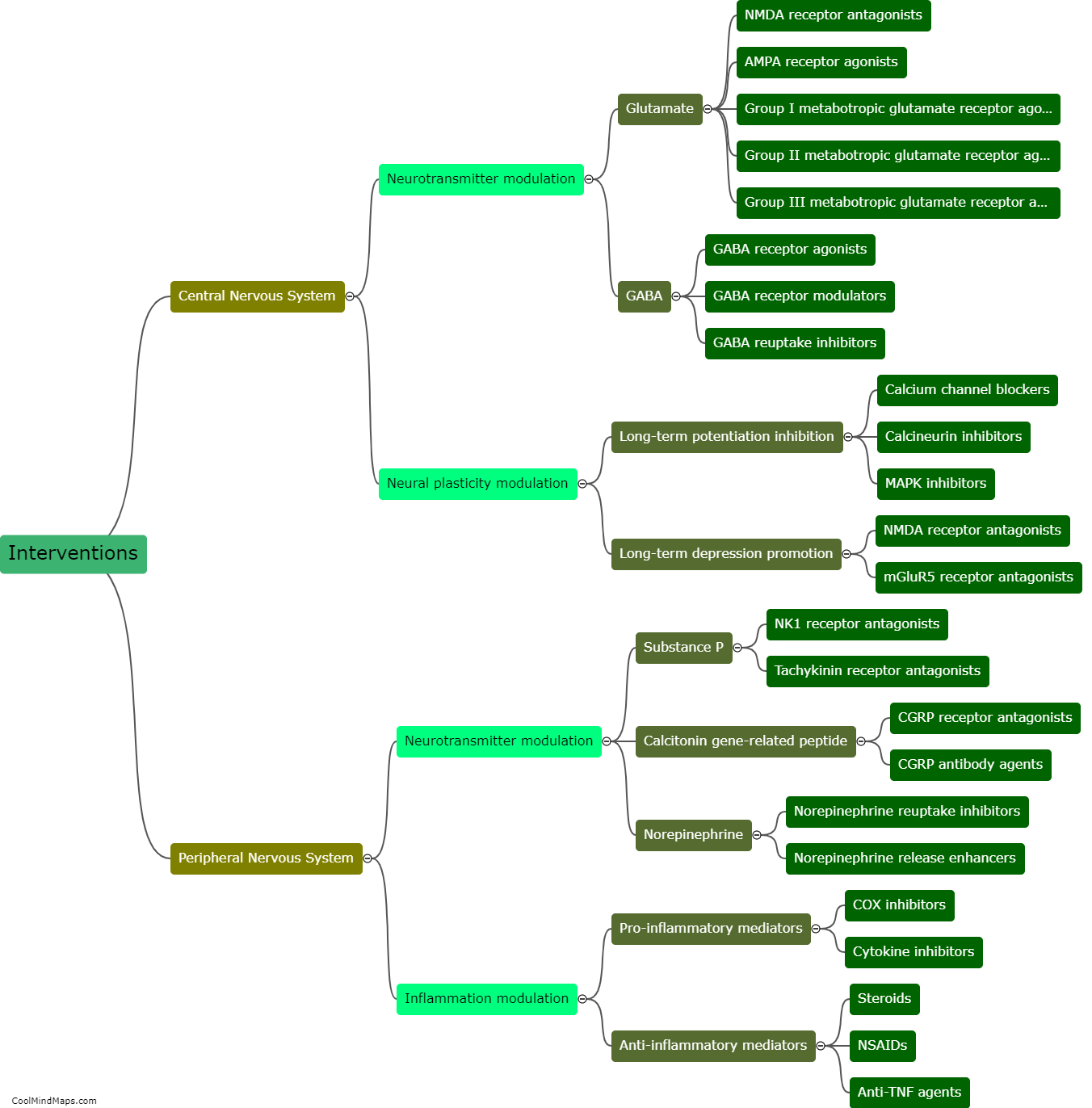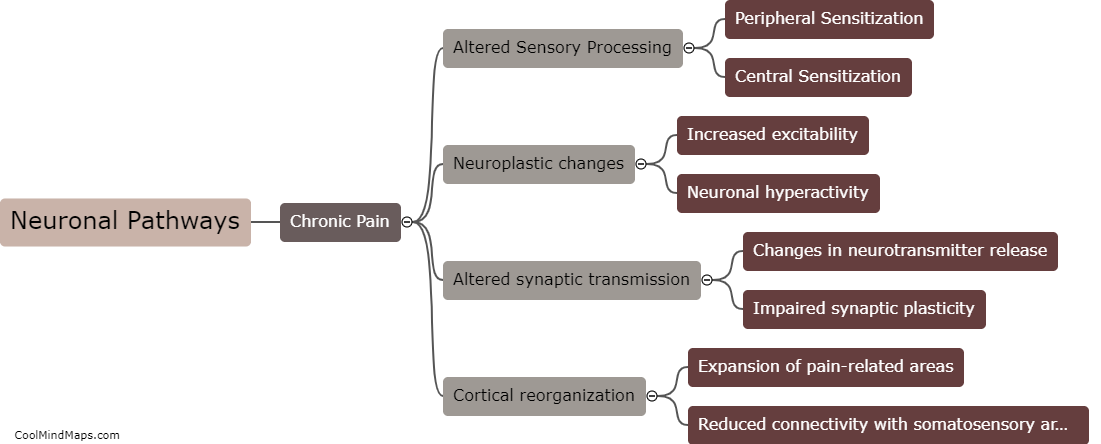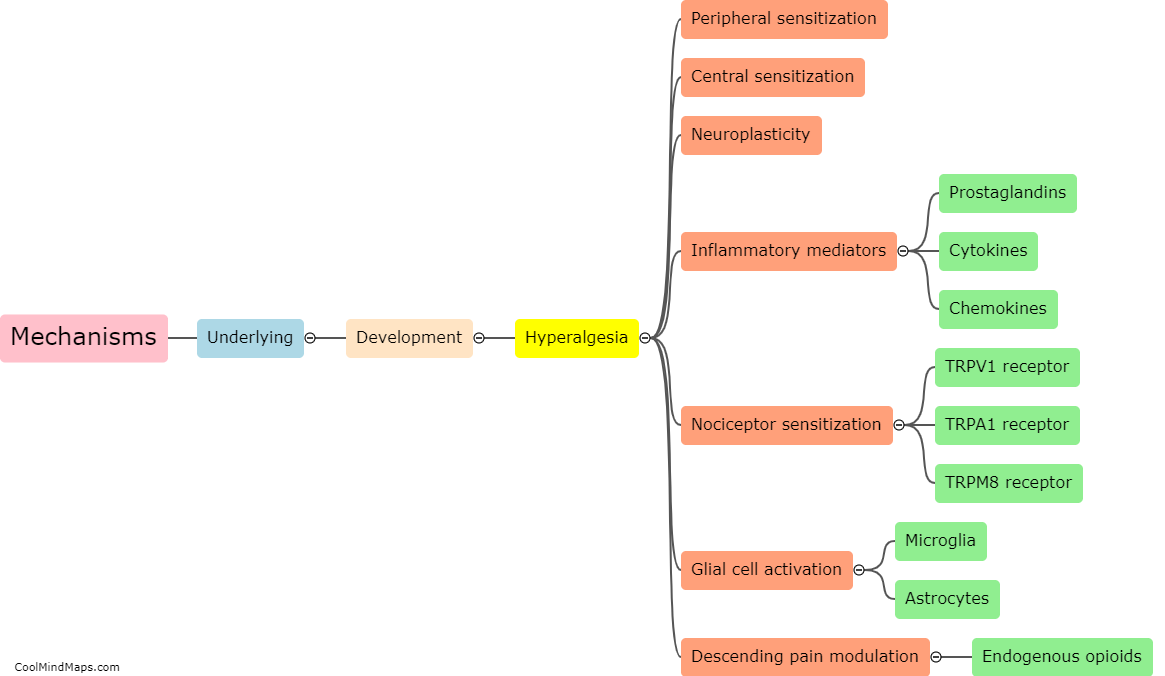How does chronic pain affect the peripheral nervous system?
Chronic pain refers to persistent or recurring pain that lasts for an extended period, usually over three months. It has been found to have profound effects on the peripheral nervous system. Chronic pain can lead to structural and functional alterations in the peripheral nerves, which transmit signals between the central nervous system and the rest of the body. This can result in increased sensitivity to pain, a phenomenon known as hyperalgesia. Chronic pain can also cause peripheral nerve damage and inflammation, which further exacerbate pain symptoms. Additionally, the altered signaling in the peripheral nerves can disrupt normal sensory and motor functions, leading to various sensory abnormalities and limitations in movement. Hence, chronic pain significantly impacts the peripheral nervous system, perpetuating a cycle of pain and dysfunction.

This mind map was published on 2 December 2023 and has been viewed 103 times.
